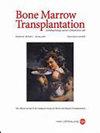欧米克隆波期间bcma靶向CAR-T细胞受体COVID-19的临床特征和结局:一项回顾性研究
IF 4.5
2区 医学
Q1 HEMATOLOGY
引用次数: 0
摘要
复发或难治性多发性骨髓瘤(R/R- mm)患者由于免疫功能低下,更容易患上2019年严重冠状病毒病(COVID-19)。尽管对b细胞成熟抗原(BCMA)靶向嵌合抗原受体(CAR)-T细胞治疗有良好的反应,但CAR-T细胞输注后的体液免疫缺陷仍可能导致这些患者危及生命的并发症。我们进行了一项比较研究,以描述bcma靶向CAR-T细胞治疗患者感染COVID-19与未感染患者的临床特征和结果。高龄(优势比[OR] = 1.367, 95%可信区间[CI] = 1.017-1.838, P = 0.038)是发生严重COVID-19的危险因素,而CAR-T细胞治疗达到的完全缓解(CR) (OR = 0.012, 95% CI = 0.000-0.674, P = 0.032)具有保护作用。男性(风险比[HR] = 5.274, 95% CI = 1.584-17.562, P = 0.007)和CAR-T细胞治疗的CR (HR = 3.107, 95% CI = 1.025-9.418, P = 0.045)是与COVID-19病程相关的保护因素。CAR-T细胞治疗获得的CR (HR = 0.064, 95% CI = 0.007-0.589, P = 0.015)也是OS的保护因素,而COVID-19诊断时疾病进展(HR = 14.206, 95% CI = 1.555-129.819, P = 0.019)被认为是OS的危险因素。因此,老年R/R- mm患者和CAR-T细胞治疗后未达到CR的患者应该最能保护Omicron变体免受COVID-19感染。本文章由计算机程序翻译,如有差异,请以英文原文为准。

Clinical characteristics and outcomes of BCMA-targeted CAR-T cell recipients with COVID-19 during the Omicron wave: a retrospective study
Patients with relapsed or refractory multiple myeloma (R/R-MM) are more susceptible to develop severe coronavirus disease 2019 (COVID-19) for their immunocompromised states. Despite good responses to B-cell maturation antigen (BCMA)-targeted chimeric antigen receptor (CAR)-T cell therapy, deficiencies in humoral immunity following CAR-T cell infusions can still cause life-threatening complications in these patients. We conducted a comparative study to delineate the clinical characteristics and outcomes between recipients of BCMA-targeted CAR-T cell therapy who contracted COVID-19 vs. unaffected counterparts. Advanced age (odds ratio [OR] = 1.367, 95% confidence interval [CI] = 1.017–1.838, P = 0.038) was a risk factor for developing severe COVID-19, while complete remission (CR) achieved by CAR-T cell therapy (OR = 0.012, 95% CI = 0.000–0.674, P = 0.032) was protective. Male sex (hazard ratio [HR] = 5.274, 95% CI = 1.584–17.562, P = 0.007) and CR achieved by CAR-T cell therapy (HR = 3.107, 95% CI = 1.025–9.418, P = 0.045) were protective factors associated with COVID-19 duration. CR achieved by CAR-T cell therapy (HR = 0.064, 95% CI = 0.007–0.589, P = 0.015) was also a protective factor for OS, while progression disease at the time of COVID-19 diagnosis (HR = 14.206, 95% CI = 1.555–129.819, P = 0.019) was regarded as a risk factor. Thus, older patients with R/R-MM and those who do not achieve CR after CAR-T cell therapy should be most protected from COVID-19 infection by the Omicron variant.
求助全文
通过发布文献求助,成功后即可免费获取论文全文。
去求助
来源期刊

Bone Marrow Transplantation
医学-免疫学
CiteScore
8.40
自引率
8.30%
发文量
337
审稿时长
6 months
期刊介绍:
Bone Marrow Transplantation publishes high quality, peer reviewed original research that addresses all aspects of basic biology and clinical use of haemopoietic stem cell transplantation.
The broad scope of the journal thus encompasses topics such as stem cell biology, e.g., kinetics and cytokine control, transplantation immunology e.g., HLA and matching techniques, translational research, and clinical results of specific transplant protocols. Bone Marrow Transplantation publishes 24 issues a year.
 求助内容:
求助内容: 应助结果提醒方式:
应助结果提醒方式:


